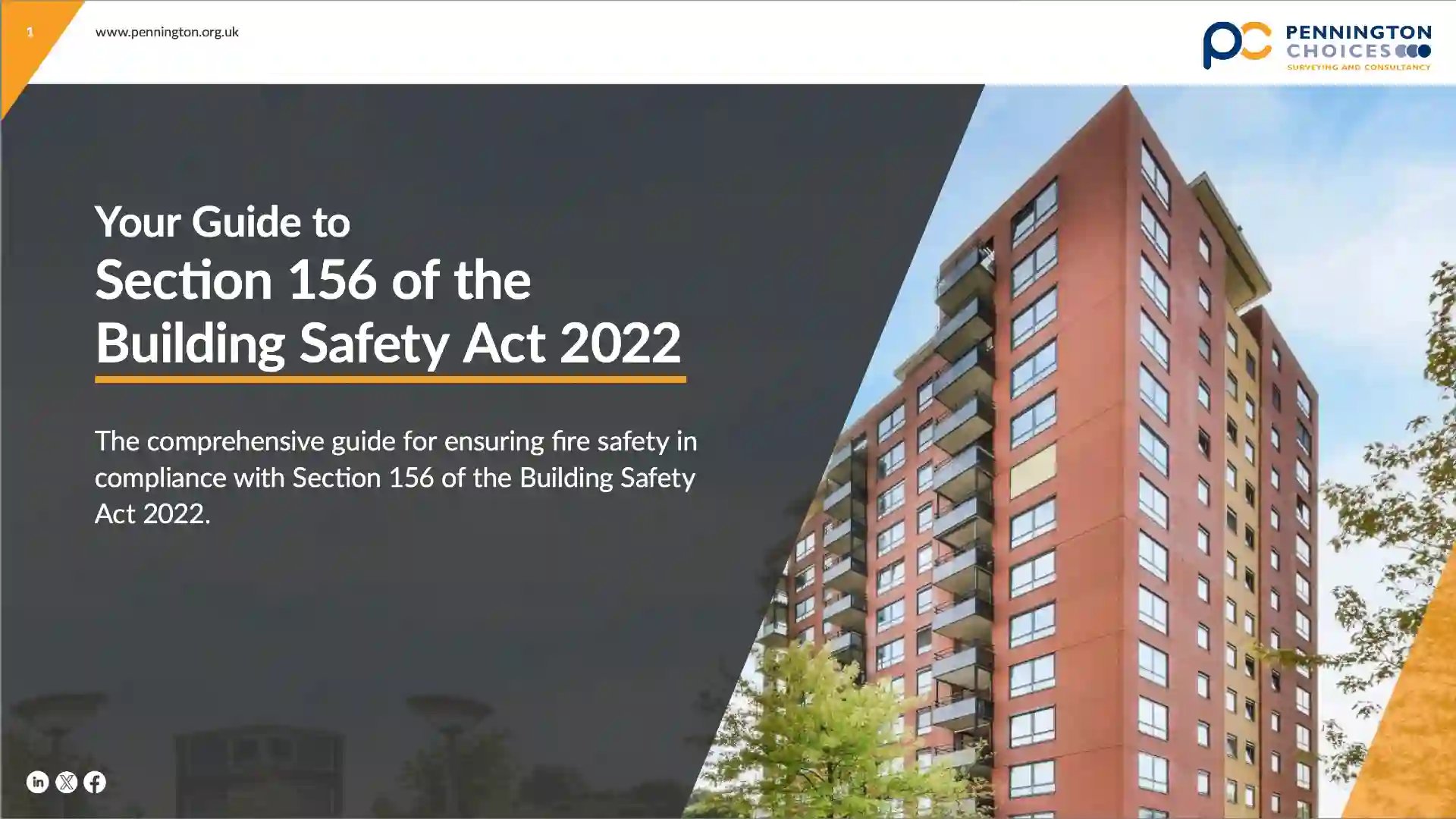Stay connected
Last updated: 29th May 2024
Staying up to date with the sector whilst navigating the evolving landscape of fire safety is essential for ensuring the safety of your buildings. As of 1st October 2023, several changes to fire regulations are now in force for Responsible Persons (RPs) under Section 156 of the Building Safety Act 2022. These are the latest changes that amend the Regulatory Reform (Fire Safety) Order 2005, the main piece of fire safety legislation in England and Wales, with the most significant updates altering the duties of the RP. It's crucial that you manage and maintain your fire safety practices in alignment with the relevant and most up-to-date regulations to ensure compliance. To quickly recap, the Building Safety Act 2022 will help people be and feel safer in their homes, and will change the way buildings are designed, constructed, and managed.
For a comprehensive overview of the fire safety legislation that you must understand to ensure compliance, catch up on our latest fire safety legislation webinar, 'Fire Safety Legislation: Latest legal obligations and best practice', available on demand now.
Section 156 of the Building Safety Act 2022
As part of Phase 3 of the Fire Safety Reform Programme, Section 156 sets out the new legal duties for RPs, including the following:
Increased requirements to record Fire Risk Assessments (FRA) and fire safety arrangements are high on the radar with the new changes. RPs must keep records of all aspects of fire safety, recording their fire safety arrangements in full. This includes a suitable and sufficient FRA and sharing information with residents in multi-occupied buildings about the individual who undertook the FRA. This shifts from previous practices when the requirement of a written FRA only applied to certain circumstances and only required the significant findings to be recorded.
In residential buildings with two or more domestic premises, RP’s must provide residents with clear, relevant, and easy-to-understand fire safety information in a digestible format. This adds more detail to former guidance which required residents to be informed about fire doors and emergency procedures.
Where there is more than one RP in a residential building, for instance in multi-occupancy commercial buildings, enhanced requirements for cooperation and coordination between all RPs is key to ensure a unified fire safety strategy. This point includes keeping a record of the information provided regarding your duties within the premises and sharing information with new RPs to continue the recording of fire safety information throughout the building's entire lifetime. According to government guidance, this includes sharing information such as:
- The fire risk assessment and review records (including any fire safety information provided by other Responsible Persons);
- The identity of any person who assisted with the fire risk assessment/ review;
- The name and UK address of any Responsible Person or any person acting on behalf of the Responsible Person who will accept notices or other documentation;
- The identity of the Accountable Person, where known (if a higher risk residential building);
- Any information given under regulation 38 of the Building Regulations 2010 (such as the information provided when a building is built or extended).
(Source: Gov.uk)
Beyond the RP’s new responsibilities, additional fire regulation changes have introduced increased fines for certain offences, like failing to comply with the requirements of an inspector, alongside strengthened statutory guidance.
To discover how Section 156 of the Building Safety Act fits into other relevant fire safety legislation, head over to our blog, 'Fire Safety: Everything you need to know in 5 minutes', to help you navigate all the key legislation, including the Regulatory Reform (Fire Safety) Order 2005 and how to ensure compliance.
On 29th September 2023, two new guidance documents were published to ensure the change in fire safety regulations had a smooth transition. These documents are invaluable to providing you with a comprehensive understanding of what the legislation means and how you can stay compliant.
The first document is guidance for ‘People with duties under fire safety laws’. It was published to assist RP’s with understanding their duties under the fire safety laws in England in simple, nonlegal terms. You can read more about the RP responsibilities here.
The second document, ‘Enforcement and sanctions for non-compliance', is guidance on the Fire Safety Order and was published to explain the sanctions that are available to Enforcing Authorities if you fail to comply with the Regulatory Reform (Fire Safety) Order 2005. Find out more about the sanctions in the full document.
Yet another significant milestone in fire safety, the 2023 fire regulation changes underscore a commitment to reinforcing fire safety measures and creating a robust framework for compliance across the sector. For further information about what these changes mean for you, you can view the official government guidance here.
.webp?width=600&height=150&name=Pennington%20Choices%20Logo%20(reduced).webp)







